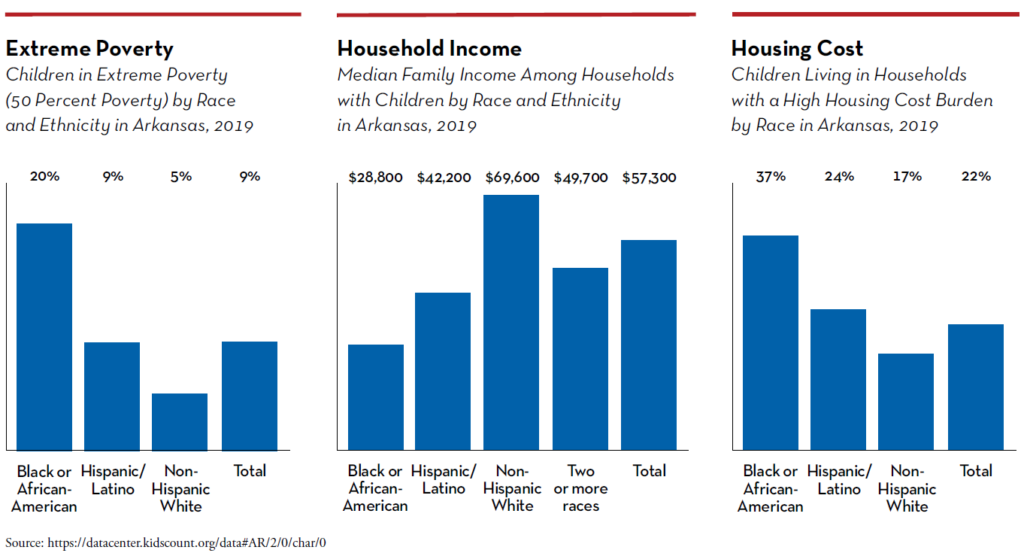
Download this handout: Racial Equity and Inclusion
Racial identity should have no influence on how well a child fares in society. But it’s clear that both historic and existing structural racism in our laws and policies have a negative impact on the lives of Black, Indigenous, and People of Color (BIPOC) children and families. Even when you control for socioeconomic, health, education, and other factors, racial disparities continue to exist. These include inequitable criminal justice policies that disproportionally incarcerate Black and Brown people compared to their White counterparts and restrictive property use and zoning laws that have led to the divestment and disenfranchisement of BIPOC communities.
The COVID-19 Pandemic has highlighted many more disparities. BIPOC communities have been more likely to be exposed to COVID-19, have more serious illness upon being admitted to the hospital, and have an increased risk of death. BIPOC communities are more likely to lack access to quality health care, have poorer general health, have lower educational attainment rates, and lack economic stability; all factors that have been identified to affect health outcomes. These disparities pervade all aspects of life for BIPOC children and families. For example, in Arkansas, 39% of our Black children and 27% of our Hispanic/ Latino children live in poverty, compared to 16% of our White children.
These figures are alarming, as children living in poverty are far more likely to lack stable housing, experience significant educational gaps, and suffer worse health outcomes. Children who grow up in poverty are also more likely to have trouble transitioning into stable, productive adults. But there are policy options that can help children and families achieve more equitable outcomes like investment in early childhood education and afterschool programs, Earned Income Tax Credits, preventive health care, and hunger relief programs.
What to Ask Candidates
- What is your definition of racial equity?
- To what extent has pursuing racial equity and inclusion been a priority in your work, and how do you approach it?
- What do you think are the root causes of these and other disparities along racial and ethnic lines?
- How should Arkansas address the significant disparities in poverty rates of Black and Brown families compared to their White counterparts?
Download this handout: Racial Equity and Inclusion

You must be logged in to post a comment.